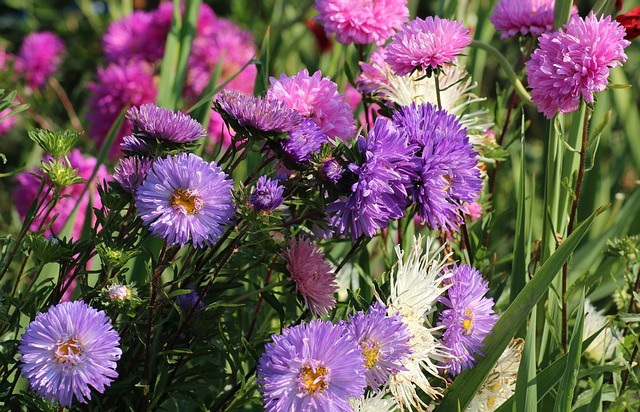
Do you always admire your neighbor’s pristine garden. Maybe you worry that your neighbor knows the secret to a beautiful garden, and you don’t. There is not a secret behind having a wonderful garden. All it takes is knowledge on how to take care of your plants properly. Start learning more about horticulture right here with these tips.
Insects and various garden pests can be avoided by making your soil healthy. If you are producing healthy plants, they will be stronger and better able to resist bugs and diseases. You want to cultivate quality soil with adequate salt levels, which leads to healthy plants.
Transfer your favorite plants indoors to rescue them from the winter frosts. It’s a good idea to save any expensive plants or those that will thrive in indoor heat. Dig around the roots carefully and transfer the plant to a pot.
If you are going to be doing some horticulture, watch out for stink bugs, especially in the fall! Fruits, peppers and tomatoes are among the foods they love to eat. Stink bugs may get out of hand and do significant damage in your garden. It is important to take steps to eliminate them from that area.
Be sure to do some weeding on a regular basis. If you’re not careful, weeds can take over your beautiful garden, ruining it. White vinegar is a pesticide-free way to battle weeds. Yes, white vinegar actually kills weeds! A spray solution is much easier to apply than to rid your garden of weeds by hand.
Don’t over-water your plants, and keep the soil around them aerated. Moisture can be a magnet for disease and parasites on your plants. Fungi is a common problem in the world of plants. Proactively treat fungi through the use of fungicidal sprays and treatments.
Fertilizing is an important step in preparing your garden soil. One type of fertilizer that really helps plants grow is manure, but be sure to utilize a type that is commercially composted to reduce the chances of pathogens. Many types of fertilizers are available. The type you utilize is not critical; just be sure to use one.
Spread a little bit of organic mulch, around two inches worth, in and about each vegetable plant. The mulch help keeps the soil that is around the plants much more moist for much longer. Mulch will help a lot in preventing weeds from growing. You’ll find this is a time saver since you won’t have to pull them later.
You should think about planting evergreens that yield berries in your garden. This will allow your garden to have color, even in the dreary winter months. A few of the most vivid plants in winter are American Holly, Winterberry, Snowberry and Cranberrybush.
When it comes to harvesting your vegetables, know when the optimal time is to do so. Different vegetables and fruits have their ideal seasons and months where they flourish, survive, and are harvested at the highest quality. For example, zucchini and baby peas are best picked young. Let your tomatoes, however, linger on the vine until they are fully ripe. So, learn about the ideal harvest time for your vegetables.
The advice in this article is fairly simple and pretty easy to follow. Put the knowledge you have just learned to good use by horticulture in a creative way. Focus on the reaction of the plants to your methods. Experimenting with already existing plants will only lead to disaster. While it may take time, with patience your beautiful garden will be admired by the whole neighborhood.